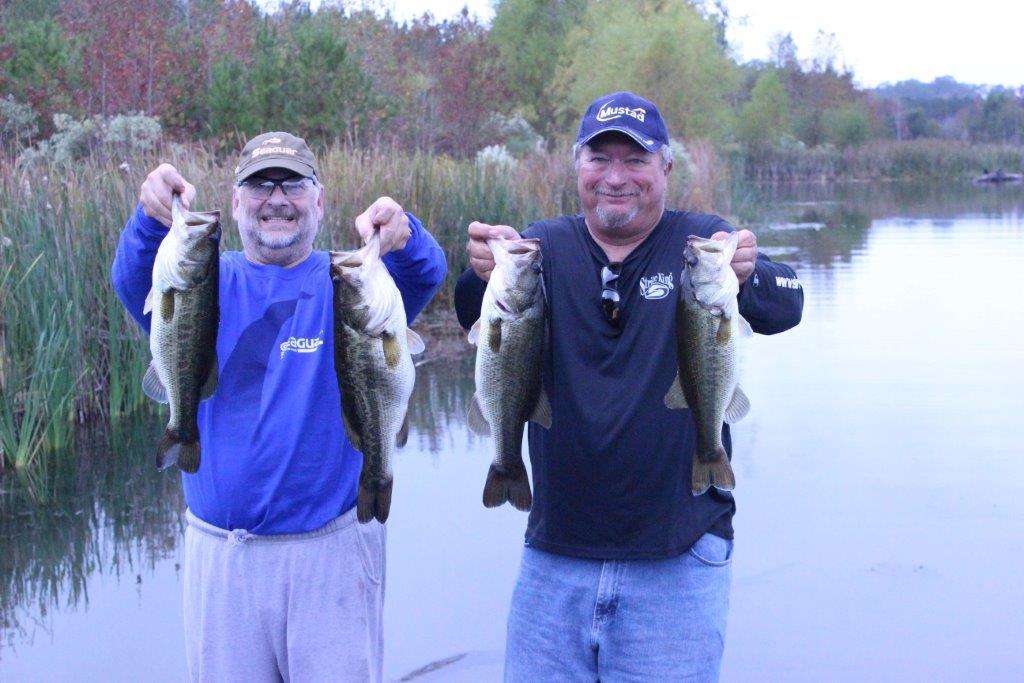
When you think about it, every good fishing tip or solid piece of fishing advice is really just a shortcut — a way to slice through the learning curve and improve our skills as an angler.
You might not think that one of the sport’s all-time greats is interested in shortcuts or that he actively seeks the “easy way out,” but 1998 GEICO Bassmaster Classic champion and 1987 Toyota Bassmaster Angler of the Year Denny Brauer is all about shortcuts.
“Why drive an hour when you know a shortcut that could get you there in 30 minutes?” he says. “And why struggle for months to learn a new technique when you could accomplish the same thing in days or even hours?”
Makes sense, right? Even better, today’s technology makes shortcuts easier to find than ever before. Here are three shortcuts Brauer uses to stay ahead of the curve, learn new tactics and maintain confidence with his fishing.
1. Get the ‘net!
That’s ‘net as in internet, by the way — the information superhighway, the go-to source for everything from knot-tying to paper crafting to dog grooming. Even top bass angler uses it.
“The internet is amazingly helpful when you’re trying to learn something new,” Brauer says. “If it’s out there, someone has written a story on it or made a video about it. And while it’s true that a lot of that stuff is junk, there’s also a lot that’s very helpful. You just have to wade through what’s there and find out which sources you can trust for good information.
“The Bassmaster Elite Series anglers are the best in the business, and Bassmaster.com has an archive of great videos in which they explain their most successful methods in great detail. I guarantee you that the pros watch these to see what the competition is up to and to learn something new.”
2. Get a coach … sort of
“If you play golf, you can hire a club pro to give you advice about your swing and go out and hit hundreds of balls a day, but most bass fishermen get their only coaching when they’re starting out as kids,” Brauer says. “That can lead to some very slow development.”
If you’re a reasonably proficient angler who has the basics down, Brauer suggests hiring a guide to help smooth out the rough edges or to learn some specialized mechanics — like flippin’, or pitching or skipping.
“A guide can take hours and hours off your learning curve,” he says, “but you need the right guide. What you’re looking for is a teaching guide who understands that you’re not looking to go out on the water that day and catch a lot of fish. You want to learn something new so you can go out all by yourself and catch them later.”
3. Practice in the best places
“When you’re trying to learn a new bass fishing technique,” Brauer says, “tough fishing is one of your biggest enemies. Sure, you can go out on public water and cast and work a bait, but without positive feedback from the fish — actual bites — it’s hard to know if you’re doing things right.”
You not only need to practice, but you need to practice in the best places available to you. Practicing at the right time of the year for the bait or technique you want to learn helps, too.
Public water can be tough. For years Brauer lived on deep, clear Lake of the Ozarks in Missouri — not exactly the poster venue for easy bassin’. “I used to go to private ponds and even to Mexico to practice as much as I could. You can get more bites there in a day than you might get in six months on tougher waters, and more bites mean more opportunities to learn and greater confidence.”

Today, Brauer lives on legendary Lake Amistad on the Texas-Mexico border, but he does a lot of his practicing at the Heartland 10-10 Ranchnear Marshall, Texas.
“The 10-10 stands for 10-pound bass and 10-point whitetails,” he says. “It’s owned and operated by my friend and cardiologist, Dr. Tommy Brown, and it has everything — all types of cover, a wide variety of depths, even variations in water color.
“A few years ago, I considered myself a poor frog angler and decided to do something about it. I could have gone out to a major public reservoir and pounded the banks for days hoping for enough bites to learn something about hook-set timing or the best hook to use, but instead I went to Heartland 10-10 and learned more in a day that I could have picked up in a year somewhere else.”
Of course, not everyone can get to exclusive waters, but if we’re willing to work a little most of us can find out-of-the-way places that offer greater opportunities to find bass action and to learn.
And all of us can look for the shortcuts that lead to better bass fishing. We only have so much time on the water in this life; shouldn’t we do what we can to make the most of it?







